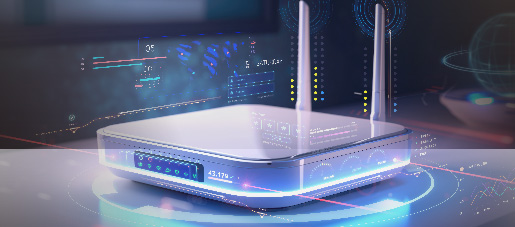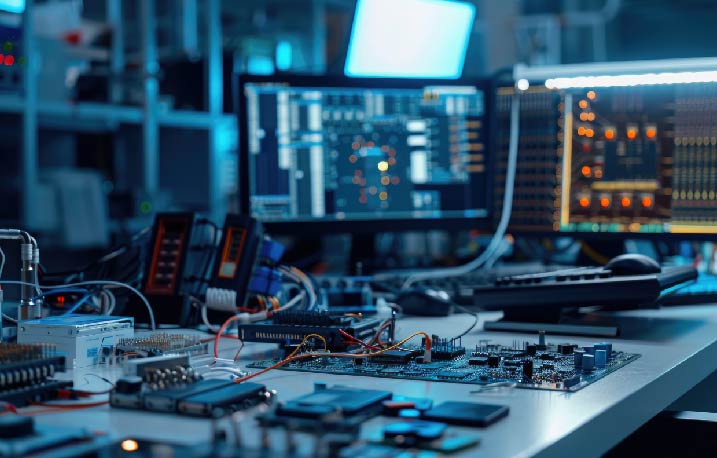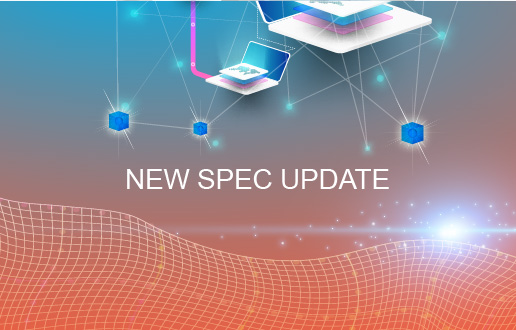Introduction
With the prevalence of various automobiles, machinery, and transportation systems, dash cams play a crucial role in modern life, becoming an indispensable part of people’s daily routines. Whether it’s public transportation like buses or tour buses that we use daily, or large trucks and trailers used for logistics and transportation by companies, it can be said that almost every vehicle on the road is equipped with a dash cam.
In addition to tracking the vehicle’s movement trajectory and surrounding environment in real-time, dash cams continuously record vehicle transport dynamics and surrounding environmental incidents. Its auxiliary value functions also include accident recording, safety monitoring, fraud prevention, route recording, and anti-theft functions. Overall, dash cams play a vital role in improving driving safety and protecting the rights and interests of vehicle owners.
Read More:
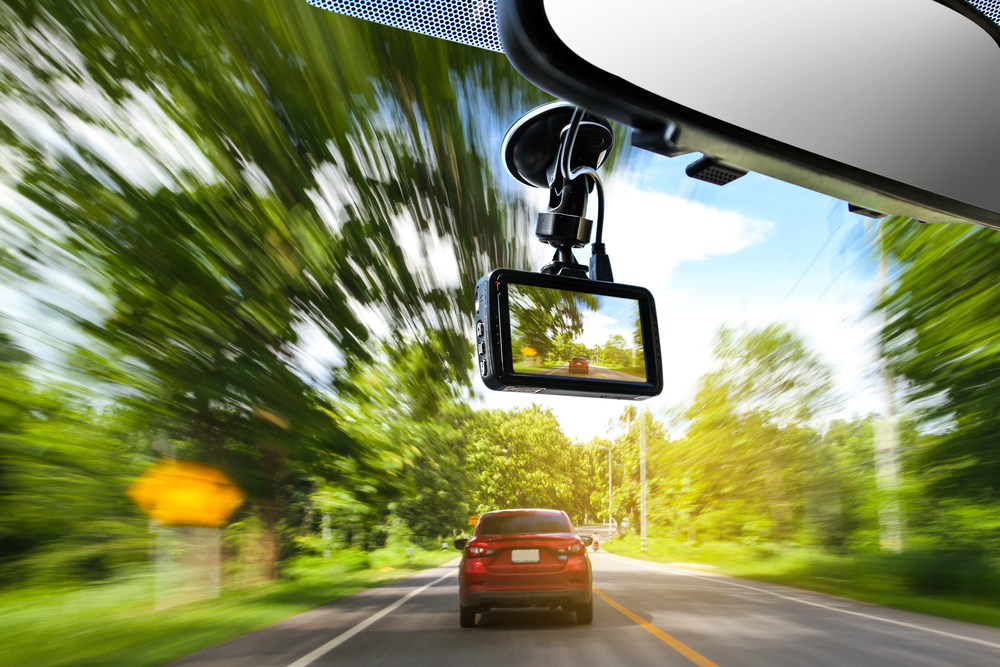
Concerns of Dash Cams: What is Crosstalk Interference?
When various manufacturers provide high-spec image recording and safety warning photography functions, they often include features such as 4K ultra-high-resolution synchronous recording in dash cams. These data are then stored in memory cards to ensure that high-resolution image recordings are saved intact and correctly. This is also one of the important factors that drivers consider when purchasing dash cams.
However, to avoid issues such as poor video quality and incorrect recordings, which are potential system failures, it is necessary to understand and carefully evaluate the destructive crosstalk interference in memory card slots, especially Near End Crosstalk interference when purchasing dash cams. This is because this type of crosstalk interference may affect the practical use of memory cards, leading to an increased risk of not being able to provide effective evidence and proof in emergency situations.
Crosstalk
Also known as “crosstalk interference,” in electronics, it refers to the phenomenon where inductive and capacitive coupling between two lines causes signal interference, resulting in the original transmission signal being unable to be smoothly transmitted.
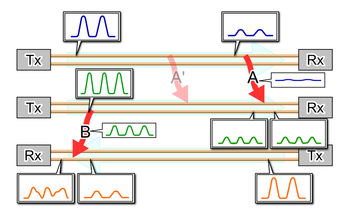
Potential Risks of Dash Cam Image Distortion
Although there are various styles of dash cams are available for consumers, the machine itself records and accesses devices primarily rely on memory cards. When using defective memory cards or poorly designed memory card slots in dash cams, there are often compatibility issues, leading to signal crosstalk interference. If crosstalk interference occurs, it can easily cause instability in electrical signals, resulting in data transmission errors. Moreover, once incorrect data is stored, it can potentially lead to the following risks:
Inability to Interpret Image Recordings
If crosstalk interference is severe, it may lead to image distortion in the recordings, making it difficult for recording devices to interpret images, thereby making it challenging to provide further explanations and evidence.
Disputes in Image Interpretation
Even with recorded images, disputes may arise due to the distortion of the image quality, resulting in different interpretations of the same event by different individuals, leading to more disputes and legal disputes.
System Failure Effects
The unstable image recording function may cause hardware components to malfunction, leading to system overheating, resulting in poor video quality, incorrect recordings, and other issues.
Dash cams undoubtedly play an important role in driving safety and the protection of the rights and interests of vehicle owners. Therefore, when manufacturers procure dash cams, they should pay attention to these risks in tender documents and list out acceptance specifications such as crosstalk that may affect product quality, to avoid the potential risks mentioned above after sales and thus prevent negative user experiences.
Examination of Practical Test Cases
The figure below shows a practical test case where Near End Crosstalk failed in high-frequency measurements conducted by Allion. In the chart, we can see the performance of memory card signal near-end crosstalk output in the frequency range from 0MHz to 15GHz. Only when the performance of memory card signal near-end crosstalk meets the limit line required by the specifications, can the specifications and performance of the memory card slot itself pass the certification test, thus avoiding the potential risks caused by crosstalk interference.
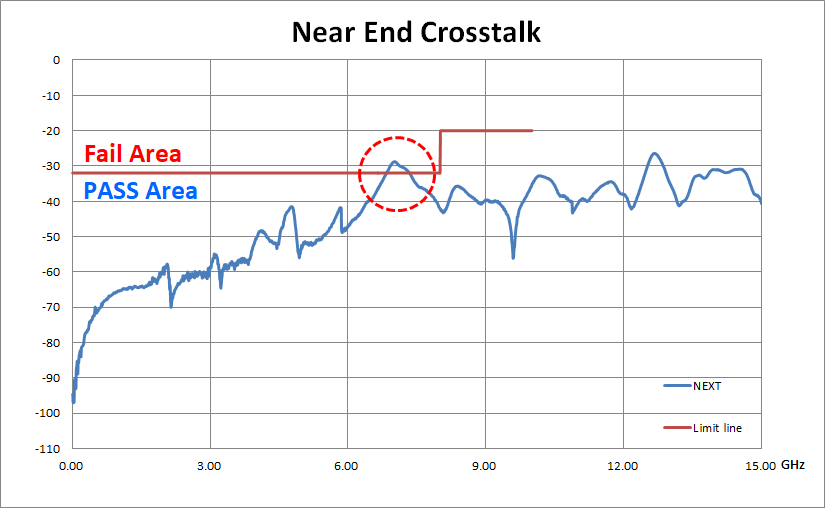
Faster, Easier, Better! Allion High-Frequency Signal Measurement Solution
As a professional testing and consulting laboratory, Allion has accumulated years of rich experience and project achievements in the validation field. We can provide customized testing solutions based on various memory card signal crosstalk interference issues and high-frequency signal testing standard procedures, providing you with faster, easier, and better one-stop engineering test consulting services.
Faster
Allion has a complete set of professional, high-frequency precision vector network analyzers (VNA), which can provide fast and accurate crosstalk interference measurement data and charts. The instrument measurement waveform can match the measurement specifications required by various memory card standards, and can quickly respond to diverse customer needs and applications, meeting customer testing requirements.

Easier
Allion can provide signal measurement services and fixture solutions for various memory cards, allowing customers to obtain data analysis and measurement support in a easier and convenient manner. At the same time, we assist manufacturers in understanding the origin of signal crosstalk interference more comprehensively. This mainly includes the following project settings:
- Customized test fixture design for dedicated memory cards
- Optimization of memory card and card slot connection end matching
- Optimization of memory card slot and PCB connection end matching
Better
While assisting manufacturers in problem-solving and providing technical support needed for evidence collection, to further meet customer verification needs and ensure that dash cam products can perform as expected in actual applications, Allion can also provide testing services for relevant organization tests and environmental compatibility testing items, helping you create a more comprehensive user experience!
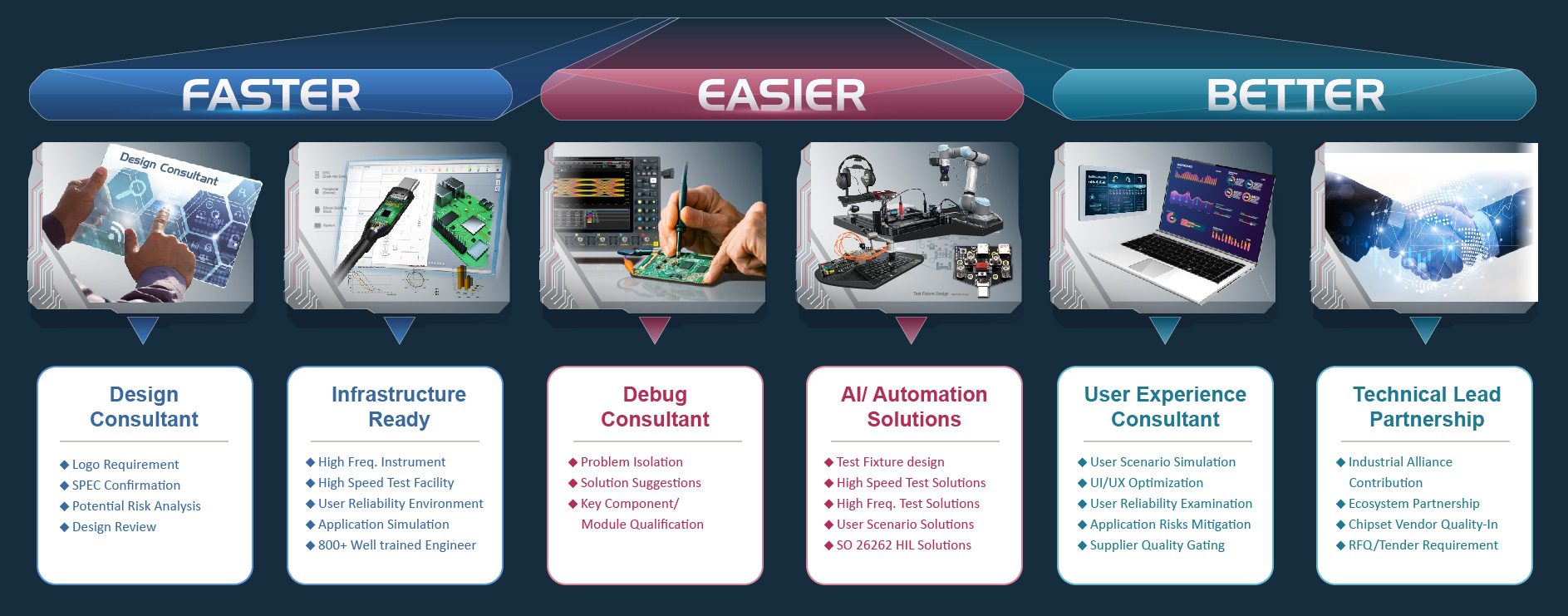
If you have further consulting service needs for high-frequency signal measurement solutions, please feel free to contact us through the online form.
Inquiry Form















